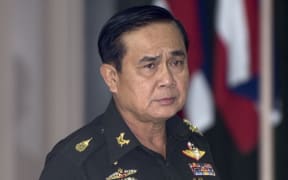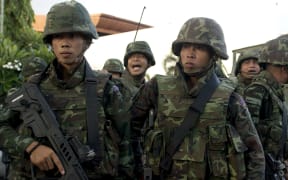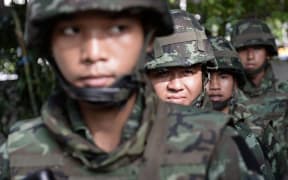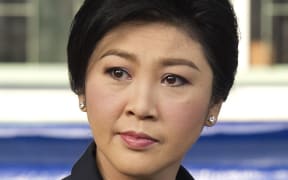Thailand's legislators have voted to impeach former prime minister Yingluck Shinawatra and ban her from politics for five years.
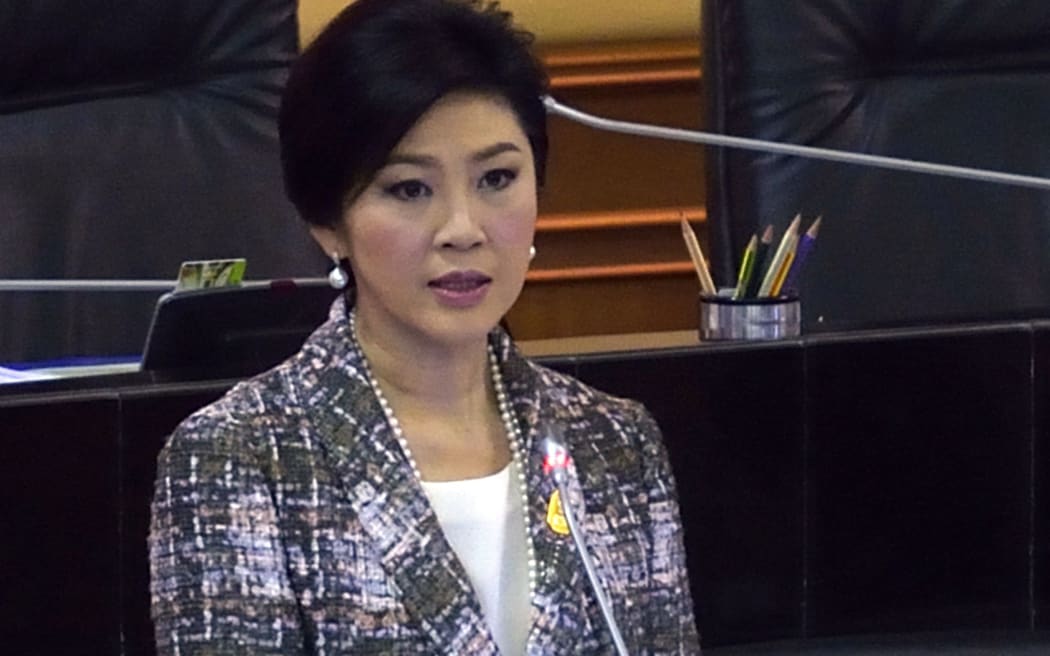
Ousted Thai PM Yingluck Shinawatra speaks before the National Legislative Assembly (NLA) in Bangkok on 22 January 2015. Photo: AFP
The move relates to her involvement in a controversial rice subsidy scheme, which opponents say cost the country billions of dollars and funnelled money to her party's power base.
Earlier on Friday, the attorney-general also announced that Ms Yingluck would face a criminal charge over her role in the scheme, the BBC reported.
If found guilty, she could be sentenced to up to ten years in prison.
Majority vote to impeach
A court removed Ms Yingluck as prime minister in May 2014, days before the military ousted her government in a coup.
On Friday, 190 out of 219 lawmakers present in the military-backed National Legislative Assembly (NLA) voted to impeach her.
Eighteen voted against impeachment while the others abstained. One lawmaker was absent for the vote.
The votes were written on a whiteboard as they were tallied, and broadcast on national television.
Ms Yingluck and her brother - tycoon and former prime minister Thaksin Shinawatra - remain hugely popular among Thailand's rural poor, but are hated by an urban and middle-class elite who accuse them of corruption and abuse of power.
Their party is the most popular in Thailand and has - under various different names - won every election since 2001.
Rice subsidy
The allegations against Ms Yingluck centre around a scheme in which her government bought rice from Thai farmers at a much higher price than on the global market.
It resulted in the accumulation of huge stockpiles of rice and hit Thailand's rice exports hard.
Anti-corruption investigators have accused Ms Yingluck and her party of using the scheme to buy votes from farmers, particularly from their power base in the north, and allowing government associates to profit from it.
Ms Yingluck has maintained that she was not involved in the scheme's day-to-day operations, and has defended it as an attempt to support the rural poor. She has also said that she could not be impeached as she has not held a position in the government for months.
Her supporters say the claims against her are a ruse to remove her from politics.
Ms Yingluck also faces up to ten years in prison if she is found guilty of negligence of duty.
Surasak Threerattrakul, the director-general of the Office of the Attorney-General, said after considering all the witnesses and evidence from the National Anti-Corruption Committee "we agree that the case substantiates a criminal indictment charge against Yingluck".
-BBC

